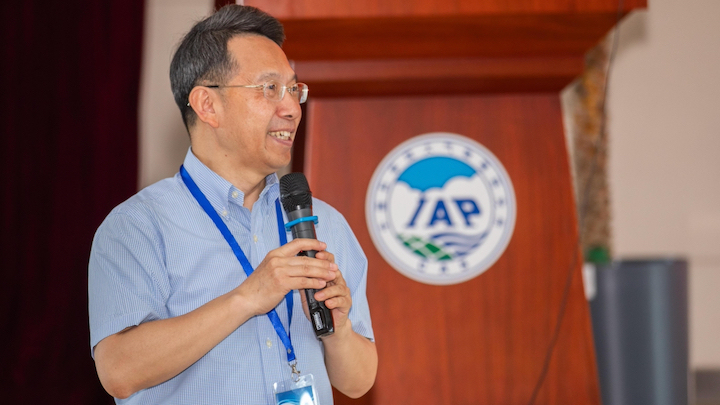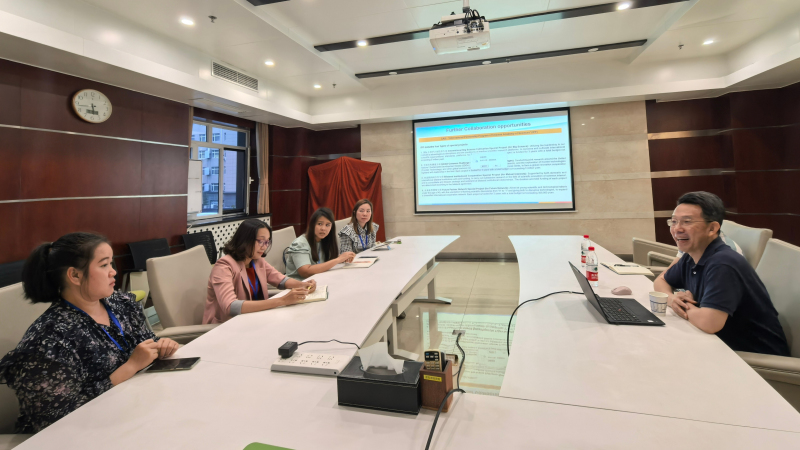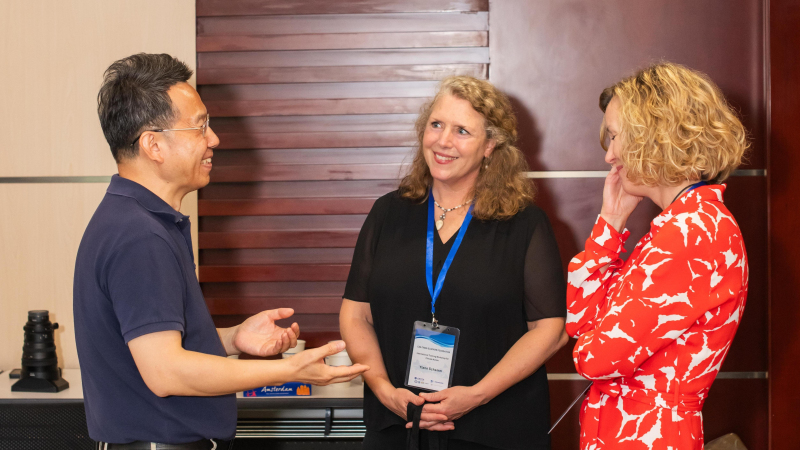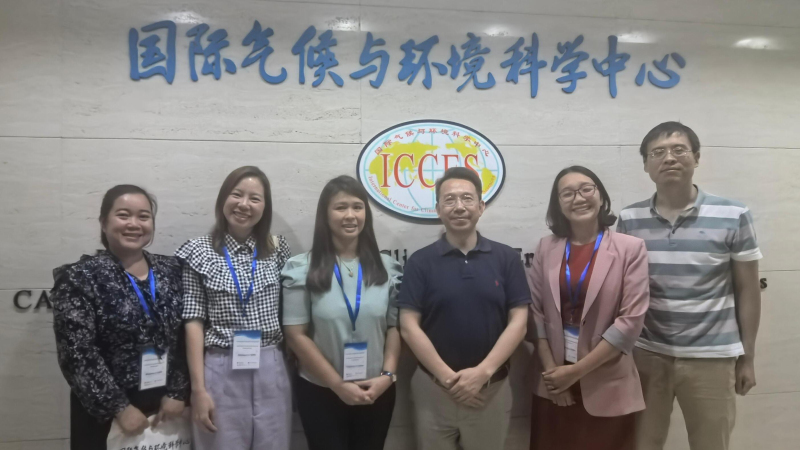TWAS and its partners strive to support research that can mitigate crises fuelled by climate change by awarding fellowships and grants for climate projects. Women, in particular, are often beneficiaries of programmes devised to provide knowledge, education, and empowerment that can help make a real difference in their communities.

At a CAS-TWAS-Elsevier Foundation workshop, 20 women scientists from 17 countries, including eight from the UN-identified Least Developed Countries, presented the results of action-based projects. The event took place from 2–6 September at the CAS-TWAS Center of Excellence for Climate and Environment Sciences (ICCES) in Beijing, China.
For an overview about the CAS-TWAS-Elsevier Foundation workshop see the relevant article here
Fifteen participants were the recipients of a TWAS-Elsevier Foundation Project Grants for Gender Equity and Climate Action, a capacity-building programme that TWAS and The Elsevier Foundation launched in 2022. Five more scientists from Kazakhstan, Lao PDR, Thailand, and Viet Nam were invited by ICCES to bring the Asian perspective to, the discussion.
The workshop, ICCES director Zhaohui Lin said, was unique because it aligned the mission and strengths of three influential organizations—CAS, TWAS, and The Elsevier Foundation—which share the same vision of advancing scientific capacity and inclusivity. By bringing together women from different countries, the event amplified the impact of their results, offering a stage for global discussion and new actions.
What follows is an interview with ICCES director Zhaohui Lin, edited for clarity and brevity.

Q. What was the aim of this workshop?
A. The CAS-TWAS-Elsevier Foundation workshop proved the importance of partnerships for providing tools that promote changes at the local and, possibly, regional levels. Climate change affects every aspect of life around the world, and the developing countries are much more vulnerable to it, especially women in the global South. By granting access to resources, training, and networking opportunities, the CAS-TWAS-Elsevier Foundation collaboration is empowering women, bringing them to lead the scene in the climate science arena.
Read the interview to Ylann Schemm, the executive director of the Elsevier Foundation here
Q. What role can women scientists from developing countries play in the global fight against the climate crisis?
A. Under changing climate conditions, severe weather and climate disasters like typhoons, heatwaves, floods, flash droughts, and long-lasting droughts are more frequent. Women are much more vulnerable to these natural disasters. They are often on the frontline of managing natural resources and facing climate impacts because of their engagement in agriculture and their role as family caregivers. Providing women scientists with extra skills and knowledge helps ensure diverse perspectives and innovative solutions. This is not just about inclusion and gender equity, it's about amplifying their voices to shape more equitable and sustainable strategies.

Q. Why did you organize an event that gathered scientists from different regions?
A. Bringing together scientists from Africa and Asia fosters knowledge sharing, making it clear that collaboration and innovation under very different conditions amplifies the outcomes. Climate change is a global challenge, and its impact is experienced differently across regions. For example, persistent drought hits Africa, whereas frequent and severe flooding often happens in South Asian regions. In September this year, we just witnessed heavy rainfall and flooding in Northern Thailand and Lao PDR. By merging teams from Africa and Asia, we not only broadened the understanding of climate change and its impacts, but created global networks that can address specific local challenges, exploiting the expertise gained far away. Kazakhstan, Viet Nam, Thailand, and Lao PDR, alongside African nations, face common and also unique challenges, making their collaboration highly relevant and beneficial.
Q. According to the IPCC sixth assessment report, approximately 3.3 to 3.6 billion people live in places that are highly vulnerable to climate change. How can we address this issue?
A. I think that the decision-makers should collaborate at the global level to mitigate emissions. But, in general, the whole world should commit to advancing resilience measures to achieve the Sustainable Development Goals and limit the most dangerous effects of climate change. And the time left for concrete actions is not much.
Q. What did the participants learn from each other?
A. The networking opportunities offered by this workshop were the most interesting outcome. The experiences shared by colleagues from different countries spurred new ideas and initiatives. I think that this workshop is just the beginning of a broader journey towards building climate resilience across different countries, ensuring that women scientists are at the forefront of this global movement.

Q. What is the aim of the six CAS-TWAS centres of excellence?
A. This partnership is a powerful catalyst to foster international collaboration, particularly when urgent challenges call for cohesiveness. It also increases the presence of women in science from developing nations. However, each centre is unique in itself, with top-notch experts in fields like green technology, biotechnology, climate and environment sciences, water and environment, emerging infectious diseases, and space technology for disaster mitigation. ICCES, for example, has very strong expertise in climate change science, so we could invite world-leading climate scientists to deliver the talks at our workshops. TWAS has very strong international networks, as well as strong experience on gender equity issues, especially in STI, and helped identify the most appropriate participants from its network. The same applies to The Elsevier Foundation, and that's why this triple synergy has made this joint event a great success, placing a specific focus on gender inclusivity and supporting female scientists from developing countries.
Cristina Serra

